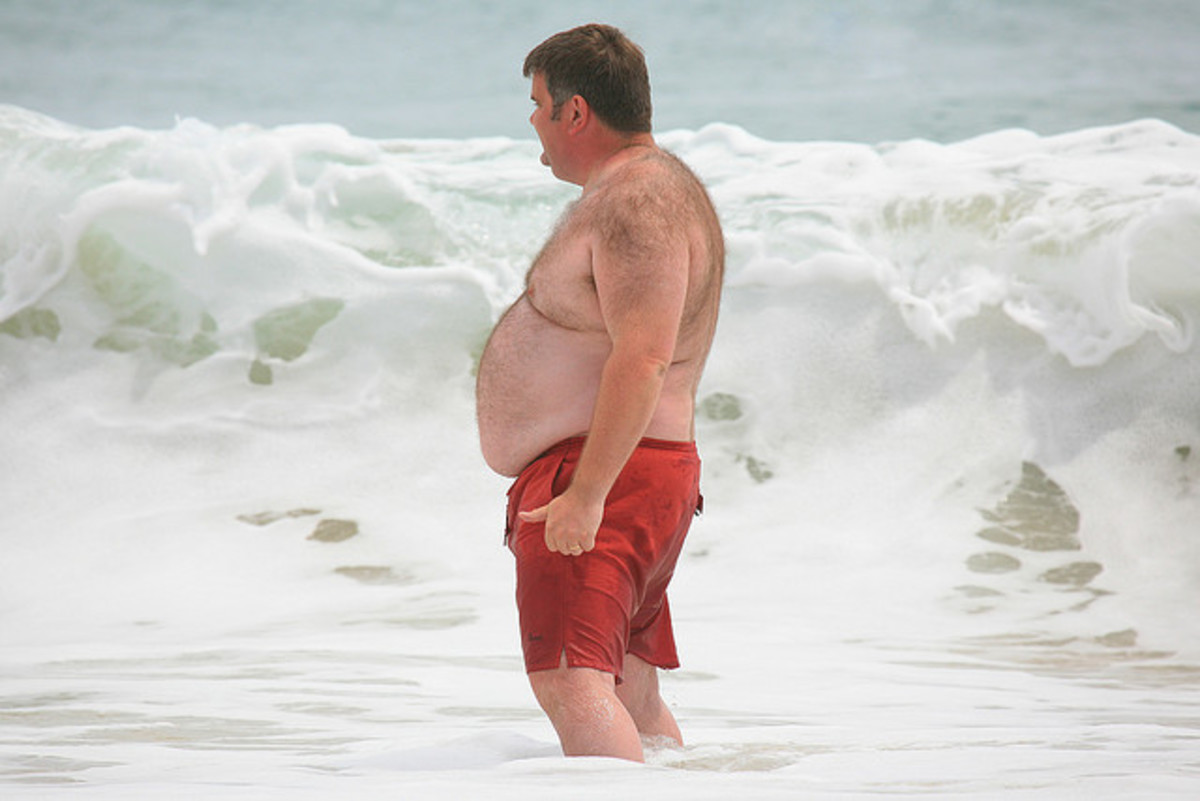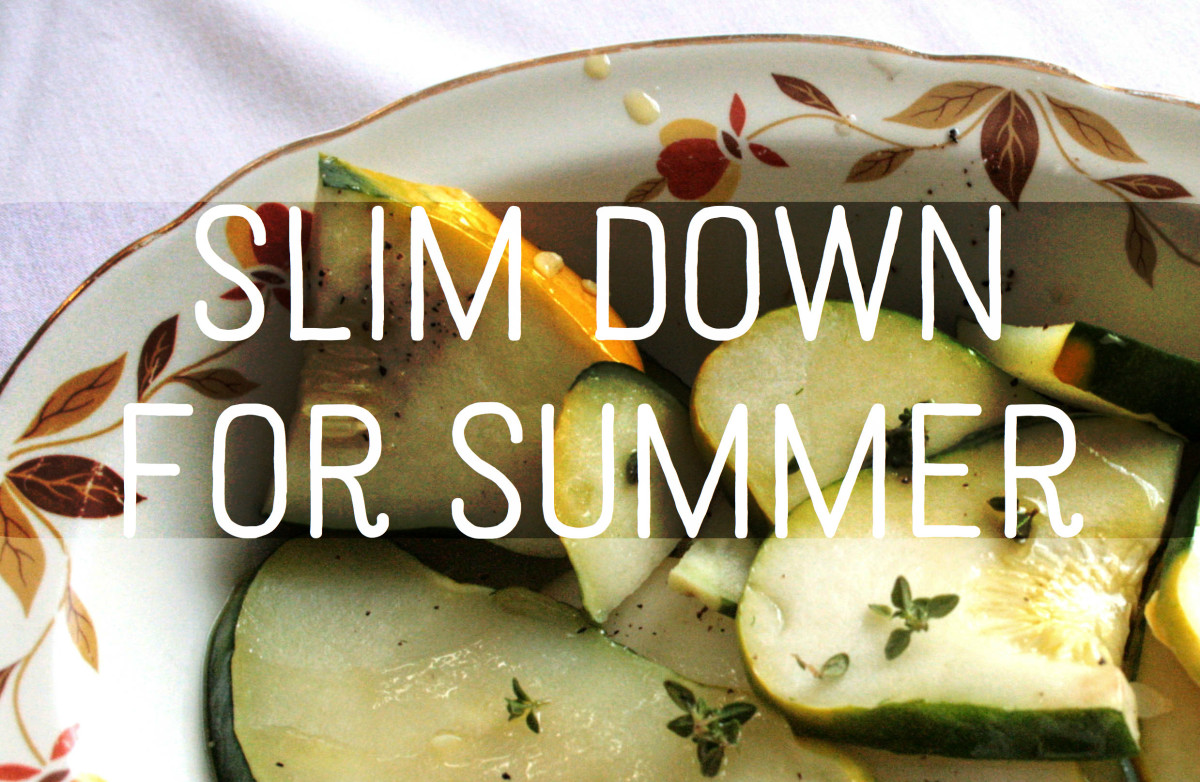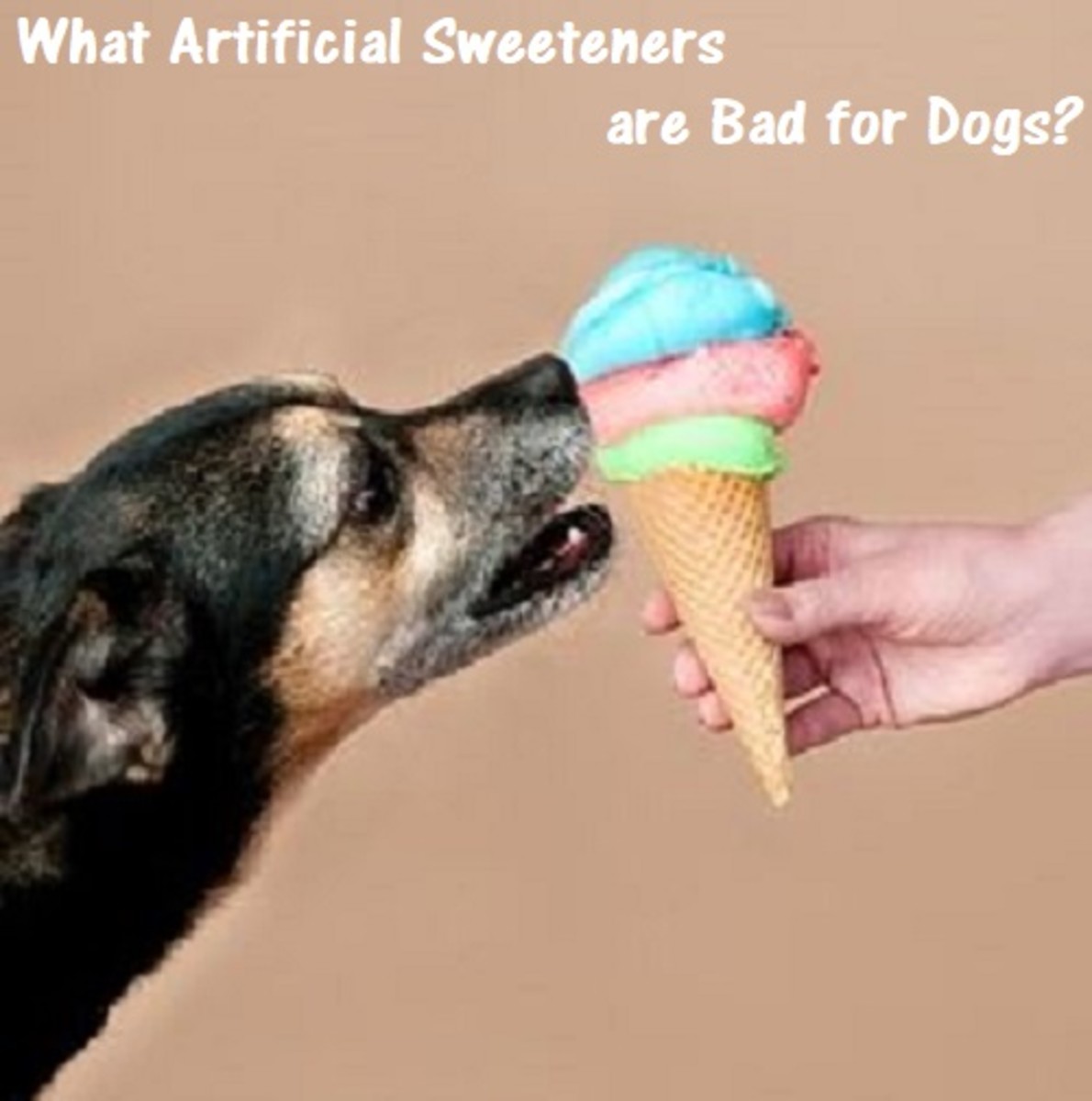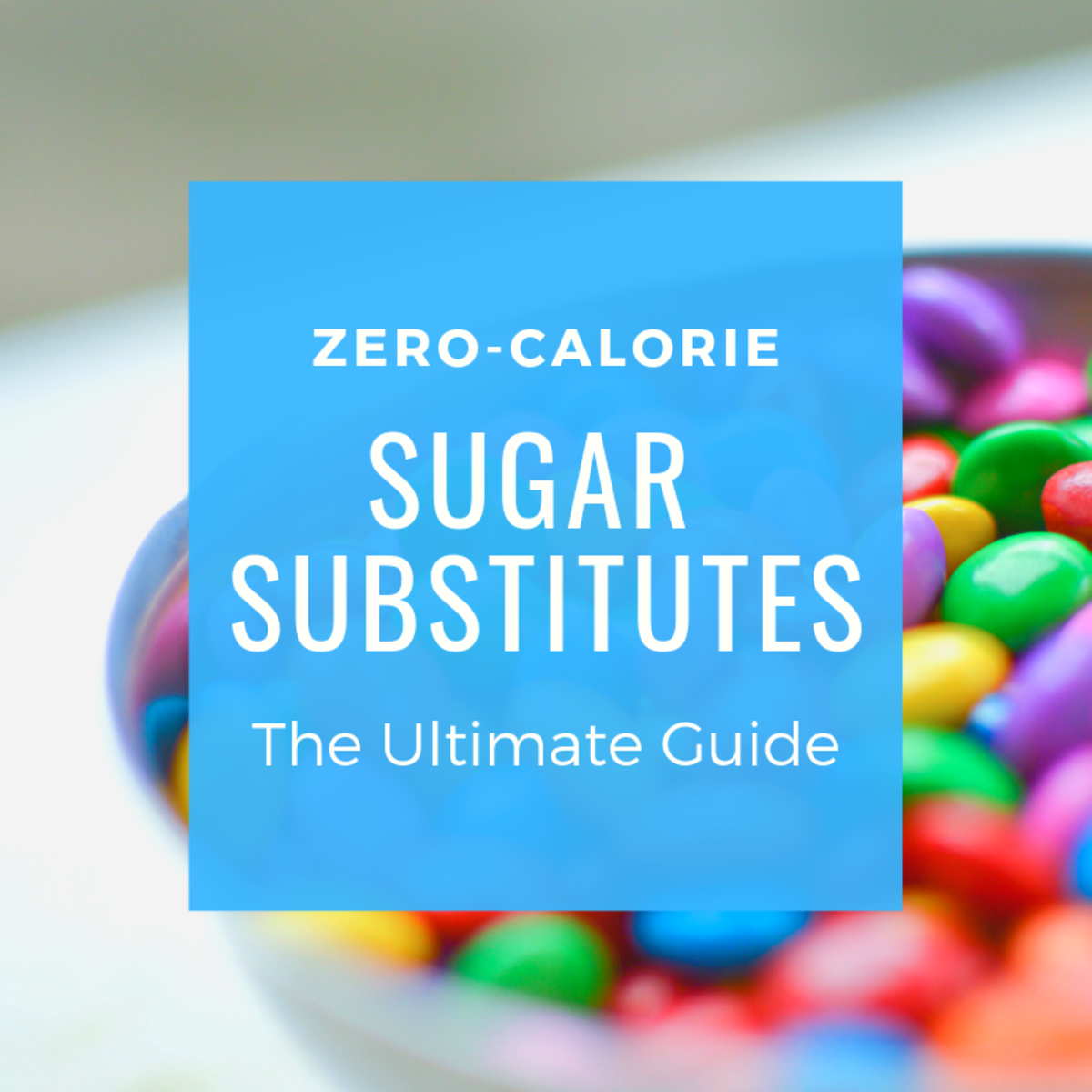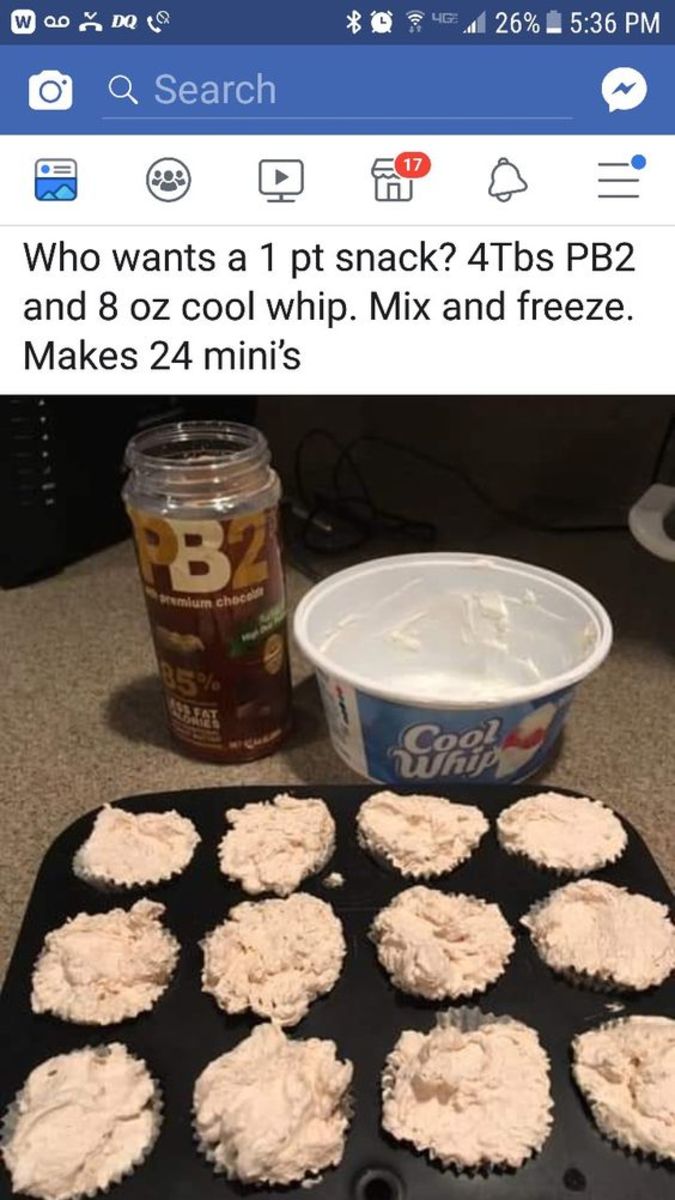Sugar vs. artificial sweeteners - which one is worse for Belly Fat?
The Belly Good Life

Sugar vs Artificial Sweeteners - why are they all so bad for you?
I don't know about you guys...but I am a woman over 40 and I need to tone down my belly (and the rest of my body, truthfully), and my sister's friend went on a diet called the "3 hour diet" and lost 20+ pounds! It is where you eat healthy small meals and snacks every three hours, so your metabolism continues to work and you lose weight.
But I know that is not all there is to it. I liked that idea, but wanted to learn more, so I did a lot of research on the internet, and found out more about this diet coach, Jorge Cruise. I have been studying his stuff for the past few weeks, and I really like his approach. He was "discovered" on Oprah so now he is "famous" and has a plethora of books for every body type and even translations into Spanish etc...but I wanted to share some info from his free 30 page ebook that I got for sending his site (www.jorgecruise.com) to three of my friends....yes you can do the same and get the whole thing instead of just what I am highlighting here.
I would highly recommend signing up for his newsletter (link below) and getting his free materials - he is also on Facebook...he says the main reason we are fat? SUGAR and CARBS! He doesn't need us to track fat and protein - just control our sources and intake of those. But the measurement of sugar and carbs is the key! And using healthy sources of sugar and carbs. So...how can we do that? I know all about complex carbs and how to stay away from refined and white bread, sugar and pasta, and use whole wheat. But my problem has been that I really am eating too much sugar, even while trying to eat healthy!
In my defense, I have been under the assumption that sugar was better than alternatives such as Equal and Splenda, and I stay away from high-fructose corn syrup, and I am right about that.
This is what I knew - and the quotes are from Jorge Cruise's Belly Fat Cure ebook (all emphasis mine) -
"There are five sweeteners that I suggest you watch out for: saccharin (pink packets), aspartame (blue packets), sucralose (yellow packets), high fructose corn syrup, and agave nectar. The first three are known as excitotoxins, which contain neurotransmitters that “overexcite” neurons in the in the brain, causing degeneration and even death in these critically important nerve cells. I avoid these as much as possible and suggest you do the same. Here’s more on these alternative sweeteners, along with two others I recommend you avoid:
(and here comes the short version of what he said) -
Saccharin - "Saccharin is the oldest sugar substitute around; you probably know it as Sweet’N Low. It was discovered by a chemist in 1879 and became a popular additive in the 20th century. As early as 1911, though, there was already an effort being made to ban it due to its potentially unhealthy effects. Controversy continued to follow saccharin, especially in the 1970s when research published in Science linked it to bladder cancer in animals..." Instead of banning it, they just now label it...remember Tab soda? Since it is a known carcinogen, why use it?
Aspartame - "Aspartame was also discovered by a chemist; you probably know it as Equal and NutraSweet. It’s found in thousands of food and drink products—namely, diet sodas. Studies have shown that it can cause imbalances in your brain; aggravate migraines; and affect your nervous system, your moods, and even your quality of sleep." He goes on to say one study found a connection between aspartame consumption and seizures! And some researchers have noticed the rise in brain tumors since the introduction of aspartame....just sayin'!
Sucralose - "Sucralose is found in more than 4,500 products on supermarket shelves, including Splenda. Also discovered by chemists, this sugar alternative is 600 times sweeter than sugar. Scientists at Duke University recently revealed that commonly consumed amounts of sucralose reduce the amount of “good” gut bacteria by 50 percent. Gut bacteria are essential for promoting a healthy digestive system and regular bowel movements, which help you get rid of false belly fat." He goes on to say that sucralose produces significant weight gain in studies, and it contains chlorine! Why would you want to put a pool cleaning ingredient into your system? It could damage your organs and reproductive functions as well!
High-Fructose Corn Syrup - "High-fructose corn syrup (HFCS) is something you’ve probably heard is bad for you, but you might be confused about why it’s so bad. All simple sugars that enter the bloodstream can cause a rapid increase in blood sugar, but fructose has a specific effect on your body—and it’s not a good one. Fructose has also been linked to leptin resistance (the hormone that controls your appetite), kidney stones, nonalcoholic fatty liver disease, diabetes, metabolic syndrome, and heart disease.
When you consume fructose, it goes directly to your liver and gets processed into fatty deposits, which can lead to fatty liver disease—which is typically seen only in alcoholics. This fat also filters into your blood and fills your veins with fatty blood, otherwise known as high cholesterol. Since the introduction of HFCS into mainstream foods in the ’70s, the American obesity epidemic has skyrocketed.
To make matters worse, high-fructose corn syrup has invaded nearly all types of food—you can find it in breads, sodas, juices, pastas, baking ingredients, cookies, ice cream, sauces, salad dressings, jellies . . . just about everything. According to the USDA, the availability of HFCS has increased 10,673 percent since 1970!"
So whatever you do, stay away from anything with HFCS in it - look at your bread, your healthy snacks, your fruit juices, your sodas (why are you drinking those?) and anything processed.
Agave Nectar - "Agave nectar is a sweetener made from the agave plant, a common succulent found in Mexico. It’s a bit like honey, but thinner. It’s been labeled a healthy sweetener and said to be good for diabetics and “100 percent natural.” But here’s why it’s landed on my list of wrong sugars: it is actually highly processed and has even more fructose in it than high-fructose corn syrup—agave nectar can be up to 90 percent fructose."
Yikes! I have found agave nectar in a health food store and tried it, and have seen it recommended as a good substitute - but it is not! I see now that it is definitely on the list of "avoid at all costs" if it is more detrimental than HFCS...
----------------
So...I KNOW those sweeteners are bad for me, so I have been using good ol' fashioned sugar instead, for many things. My husband makes iced tea with cups of sugar in it, which I have been known to drink on occasion. I eat yogurt with real sugar instead of artificial sugar (no "Light" versions for me!) If I drink soda, it is Sprite or Dr. Pepper, not the diet versions....you get the picture. So with all my desire to eat healthy, I have succumbed to the lie that sugar is ok because it is better than the artificial stuff!
What Jorge Cruise explains is that SUGAR (and carbs) are the cause of the chemical processes in your body that prevent you from losing fat! Here is what he says -
"Here’s a fact: the average American consumes more than 47
teaspoons of sugar each day (this shocking number was revealed by
researchers at Colorado State University); that’s about 189 grams a
day. About 200 years ago, daily consumption of sugar was under 15
grams—research has shown that before the Industrial Revolution,
that’s about how much the average person ate. Guess what you
didn’t see much of then? Belly fat. You also didn’t see a population
severely overwhelmed by obesity; compare that to now, where two thirds
of our population is overweight and sick and facing crippling
medical bills due to the consequences of poor health habits."
So here are some stats from the book - cardiovascular disease (more than 600,000 annual deaths), cancer (more than 550,000 annual deaths), and type 2 diabetes (more than 70,000 annual deaths). Is it possible that most of these could be prevented by just reducing the amount of sugar we eat??
YES!! And here is the "scientific" explanation for this. It is the reaction of the hormone insulin staying high that doesn't allow your body to grab that excess fat and excrete it, and the corresponding hormone leptin can't do its job - controlling your appetite - if insulin is still hanging around in your body when it shouldn't be there.
Here is a short and simple explanation from his ebook -
"Insulin is produced by your pancreas to manage your blood sugar and control the accumulation of fat—especially around your waistline. According to Nobel prize–winning physicist Rosalyn Yalow, co-inventor of the first accurate test used to measure insulin in the bloodstream, insulin is the “the primary regulator of fat tissue.” Increased levels of insulin will make you fat and make sure you stay fat."
He continues with research that has been done that shows what happens to your blood when you consume too much sugar and it gets converted into fat—they suggested that your blood actually turns into a “pink cream.” Do you get the picture? And yes, this can lead to problems other than belly fat—namely, high blood pressure and increased risk for heart disease and type 2 diabetes. Even in a healthy person, this excess sugar will go to your abdominal muscles - hence more belly fat for us unsuspecting sugar addicts. Only when insulin disappears for a while can this fat escape from the cell to be used. That’s the primary way stored fat is released—your insulin levels absolutely have to be low.
So what happens when they aren't low? The hormone leptin can't do its job. Jorge says "Without enough leptin, your “signaling center” breaks down, and you quickly end up with a traffic jam of food in your body ready to get stored as fat. Where this fat gets deposited depends on your genetics, but most of us start storing it in our midsection. Research published in the American Journal of Clinical Nutrition confirmed that foods sweetened with fructose, sucrose, glucose, and high-fructose corn syrup all have the same effect on leptin—they fail to produce it. Another study done at the University of California, Los Angeles (UCLA), discovered the same about lactose (milk sugar)."
So what happens when leptin DOES its job (in the absence of insulin)? Research showed that the proper levels of leptin "decreased abdominal fat by 32 - 62 percent !" Making sure your diet contains foods that will regularly stimulate leptin production is essential to belly fat loss. These include proteins, fats, and complex carbs, which trigger leptin and make sure you’re not set up to overeat. Then it can control your appetite and give you that satiated feeling that you are looking for when you sit down to eat. Your body gets the nourishment it needs, and your hormones work the way they are supposed to to send the nutrients through the body, and the fats go where they should go - down the toilet!! :)
You CAN use up to 15 grams a day of sugar and you won't get into trouble. But what can we use beyond that to sweeten our drinks and other things? Stevia is the best sweetener, in Jorge's opinion (and mine, and a lot of other nutritionists concur), or xylitol is good too - I have seen that in sugarless gum recently, as well as in "healthy chocolate".
Stevia is an herb that originated in South America; it contains no calories, does not cause blood-sugar spikes, and can be used in baking. It’s much sweeter than sugar, which means that you need only a little bit to get the right amount of sweetness. Recently, stevia was approved by the FDA for use in food and drink products, and it’s the first herb-based sweetener to get that approval. Jorge calls these "nutritional supplements" and if you haven't tried stevia before, it comes in liquid form, or crystallized in packets, just like other sweeteners! You can find them these days in any health food store, and many regular grocery stores carry Truvia or Sun Crystals or Stevia packets for sale, right next to the artificial stuff!
So the next time you are tempted to use a package of sugar OR artificial sweetener - think TWICE about it and save your body the trouble. Use as little as possible (check all your labels, even the healthy ones), and buy packets of stevia for when you need them. Carry them in your purse or pocket - it may save your life! :)
And I'll keep all you Hubbers who want to follow what may be the FIRST diet/lifestyle to help me REALLY lose belly fat and weight for good! Who wants to try this with me? :)
Jorge's website and Interview by Dr. Northrup about sugar
- Jorge Cruise: #1 bestselling author featured on oprah, today and cnn
JorgeCruise.com #1 bestselling author featured on Oprah, Today show and CNN. He has written books like "The 3-Hour Diet" (for healthy eating) and "8 Minutes in the Morning" (for effective exercise for people on the go). - Death by Sugar! Video evidence of sugar's effect on the body
See the difference in actual cells of having a healthy low sugar diet and eating too much sugar in one meal - wow! - Dr. Northrup - sugar and menopause connection
This is from Jorge's facebook page. This lady knows her stuff! There is also a full transcript available when you sign up for his free stuff at jorgecruise.com.


